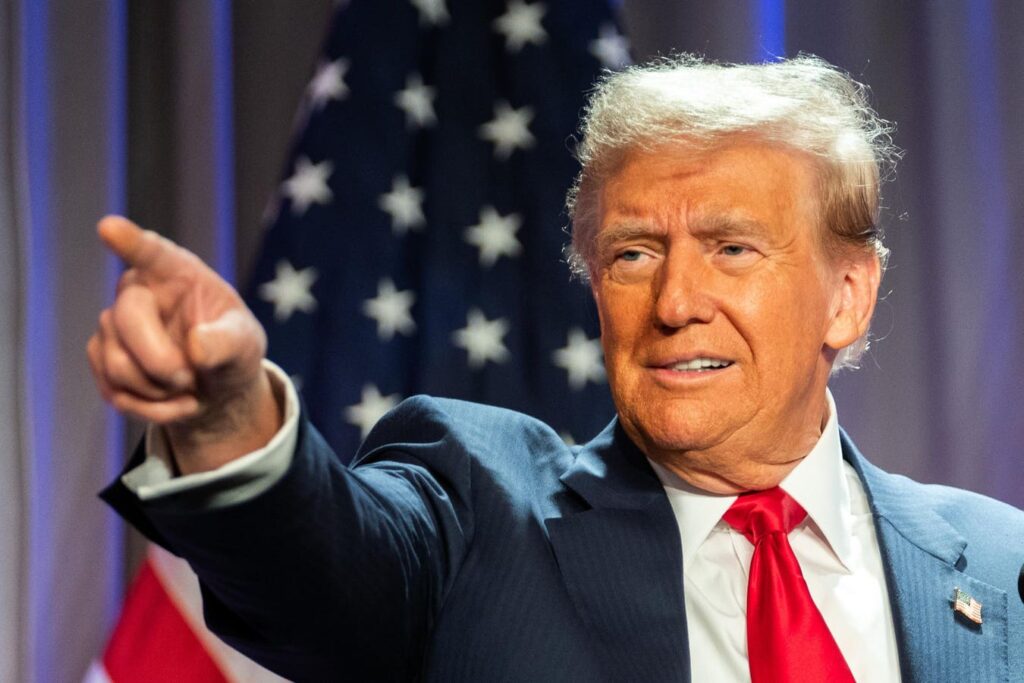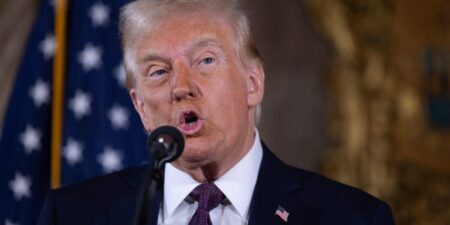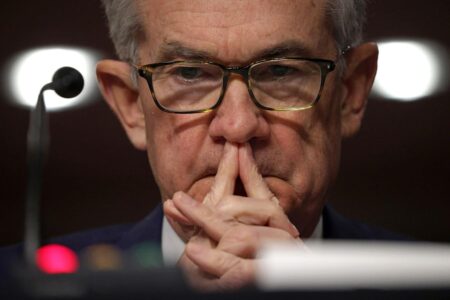While 2024 saw a slight pickup in initial public offerings, deal volumes were a far cry from the heady days of 2020 and 2021, when the combination of low interest rates, high valuations, and SPAC-mania resulted in an unprecedented number of new public companies.
Last year, the total number of IPOs was 150 operating companies that raised a cumulative $30 billion and another 56 SPAC IPOs that raised $8.5 billion, according to Renaissance Capital. This compares to over 1,000 IPOs on U.S. exchanges in 2021 that raised an astounding $286 billion.
Part of that deal drop-off can be attributed to subsiding ebullience, as many new public companies failed to deliver on their promises and saw their share prices wither. However, the policies of the Biden Administration did not help, with the SEC, under Chair Gary Gensler’s leadership, actively hostile towards SPACs and all things crypto.
With a new administration headed by a president who had a company go public via a SPAC merger and who views the stock market as a personal report card, will IPOs rebound in 2025? Since the election, I have spoken to many top dealmakers who believe that Trump 2.0 might light a fire under new issues.
Deregulation Builds Enthusiasm Around Crypto, Energy, And AI
Lise Buyer, who has served as an IPO advisor to numerous Silicon Valley companies at Class V Group, felt that the broader deregulatory push, more than changes at the SEC, could be a catalyst for a healthier market.
“Some sectors of the market will clearly benefit from what we believe will be reduced regulatory requirements, such as the crypto and AI subsectors, for starters,” she said. “If reduced regulatory scrutiny results in more rapid, if possibly temporary, growth in some sectors, the projected valuations will likely rise, and those improvements will translate into a more enthusiastic (meaning busy) IPO calendar.”
Generally, high-profile IPOs set the tone for the market and open the window for lesser-known issuers to try their luck. One factor holding the market back is that previous private market valuations were so high that management and private equity backers were loath to accept a valuation haircut or “down round” as the price of going public. However, that might be changing.
“Many private companies received very generous valuations during the 2020-2021 years,” Buyer explained. “Since then, for many, growth has slowed from over 50% to a more sustainable 15-25% range as some of the market euphoria has given way to realistic growth expectations and, therefore, valuation levels.”
If on the other hand, concerns about inflation cause interest rates to continue to head up, that may throw cold water on the appetite for new issues.
Heading into 2025, several prominent players have filed with the SEC or are rumored to be preparing to file. The mobile banking company Chime Financial, last valued at $25 billion, has blue-chip VCs behind it, including Sequoia Capital, Menlo Ventures, and Coatue Management. The AI fintech company Klarna is reported to have filed confidentially with a $20 billion valuation, a fraction of its peak private valuation of $46.5 billion, despite recent revenue growth of over 25%. LNG exporter Venture Global is said to be seeking a $110 billion valuation as it seeks to take advantage of investor enthusiasm around Trump’s plans to make America an energy superpower.
Private Equity Overdue For A “Liquidity Event”
West Riggs, Managing Director and Head of Equity Capital Markets at Truist Securities, believes that the relative outperformance of IPOs in 2024 has primed the market to be more receptive to new issues in 2025.
“We have seen the building blocks put in place during 2024 to allow 2025 to be the robust year we think it will be. If you consider the IPO class of 2024 as an asset class, focusing on IPOs greater than $100 million in deal size, they outperformed the broader indexes,” he noted. “The change in administration, as well as unified control of the House and Senate, may create a less restrictive regulatory environment that could turbo boost an IPO market already poised to have a very active year in 2025.”
Another factor that may prime the supply of new companies is that many private equity and VC funds are now overdue to generate liquidity for their limited partners, who may be less forgiving following several years of underperformance in these asset classes. Analysis by Bloomberg suggests that PE funds are sitting on $3 trillion of assets due to be taken public or sold as the funds reach their end of life. Even if valuations are not at their peak, year one of the Trump Administration may offer the best opportunity to get liquid.
Medline Industries, a medical supply company controlled by Blackstone, Carlyle, and Hellman & Friedman, has reportedly filed confidentially to raise $5 billion. Thomas Bravo is said to be cueing up enterprise security company Sailpoint for an IPO in the first half of 2025 after taking it private in 2022 amid the tech downturn. Corporates feeling a liquidity squeeze may also get in on the action, such as Smithfield Food, which has filed to do a $1 billion spin-out IPO from its Chinese parent, WH Group. If tensions rise between China and the Trump Administration, expect more Chinese-owned assets to be reconfigured for the public markets.
Can Trump Fix What Ails IPOs?
Given the incoming administration’s rhetoric about deregulation and eliminating red tape, is there a chance that Trump and team DOGE of Elon Musk and Vivek Ramaswamy can create a more streamlined environment for IPOs and reduce the burden of public company compliance?
Given that Musk has engaged in intermittent warfare with the SEC, it seems like this might be high on his priority list – although he has said little on the matter thus far. Trump’s pick to Chair the SEC, Paul Atkins, has extensive ties to the crypto industry and a history of backing the deregulation of the financial sector. He is unlikely to be seen as a scourge of Wall Street, as some viewed the prior Chair, Gary Gensler. Similarly, Jay Clayton, who has been selected to head the U.S. Attorney’s Office for the Southern District of New York, had a light touch when he chaired the SEC.
However, Doug Ellenoff, whose law firm Ellenoff Grossman & Schole consistently ranks as the top advisor to SPAC IPOs, is skeptical that wholesale changes will occur.
“While I don’t believe that the new administration will change the rules regarding IPOs to improve the process, the mere replacement of the Chair position will have a positive impact,” Ellenoff said. “I’d like to see the SEC work cooperatively with all new forms of capital formation to encourage innovation for entrepreneurial funding. I trust the new administration will finally create a regulated pathway for crypto to become a compliant and registered security.”
Lou Taubman, whose law firm Hunter Taubman Fischer & Li represents a large number of issuers from Asia, conceded that it’s unclear if companies from China will be able to benefit from lighter regulations or be caught up in escalating disputes over trade and investment.
“We are cautiously optimistic that smaller China-based IPOs will not be unduly affected. However, larger state-supported companies that want to access the U.S. markets will likely be subject to increased scrutiny, particularly if tensions continue to rise between the U.S. and Chinese governments,” Taubman said.
“If the new administration follows through on its promise to relax regulations, this should be a positive for business in general but for smaller companies in particular that are less able to afford compliance with burdensome regulation,” Taubman continued. “We also expect to see a continuation of the shift toward jurisdictions other than China in the Asia Pacific region, such as Japan, Singapore, and Malaysia.”
It will take more than lighter enforcement to change the cost-benefit calculus that has led many companies to choose to remain private and avail themselves of private equity funding rather than subject themselves to the compliance burden and reputational risk of entering the public markets. Despite all the advances in technology, the explosion of venture capital, and the reduction of the cost of founding a start-up, the number of public companies in the United States has been cut in half from over 8,000 in the 1990s to around 4,000 today. Something is clearly amiss in the American capital markets.
It remains to be seen if Trump and the Department of Government Efficiency are up for radically reimagining a framework for regulating IPOs that has not been fundamentally overhauled since the 1930s. Is it time to Make the American Capital Markets Great Again, Elon?
Read the full article here
















